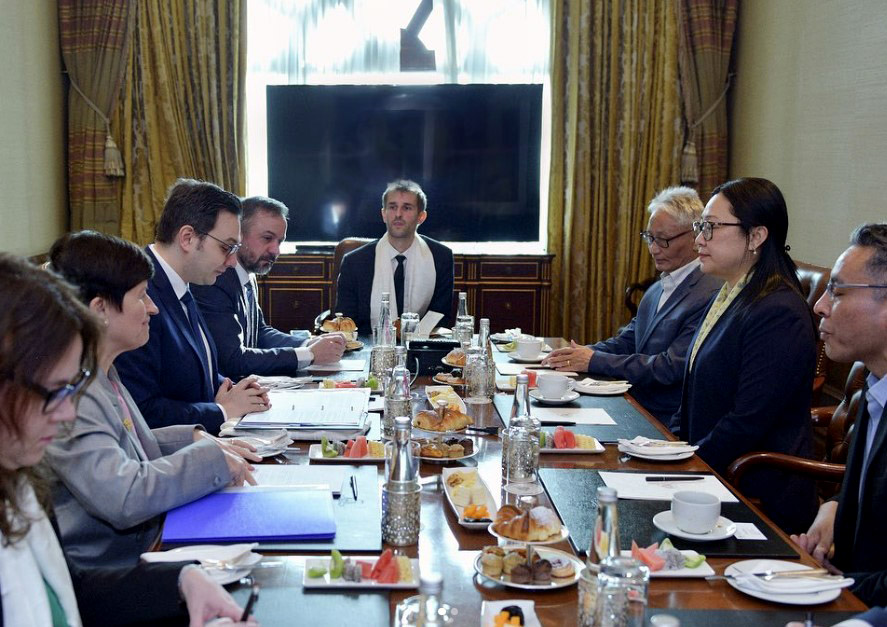(TibetanReview.net, Mar03’23) – Sharply criticized by the Chinese embassy in Prague, Foreign Minister Jan Lipavský has defended his meeting with exile Tibetan administration officials in New Delhi on Feb 28. He said that he had not violated any terms of Czech foreign policy and he did not do anything wrong, reported the expats.cz Mar 2.
“The Chinese side once again calls on the relevant Czech side to abide by the political commitment of one China, to stop using China-related issues for political manipulation and to avoid creating further disturbances and obstacles in the development of Sino-Czech relations,” the embassy spokesperson was reported to have said in a statement following the meeting.
Lipavský had met with his Tibetan counterpart Ms Norzin Dolma and Representative Mr Lobsang Shastri of the Bureau of His Holiness the Dalai Lama, New Delhi. He called the meeting a continuation of the close friendship his country’s first President Mr Václav Havel shared with the Dalai Lama.
The wionews.com Feb 29 quoted Lipavský as saying, “it was a friendly meeting. There is a long-term friendly relationship between the whole Czech society & Tibetans, so it was very friendly. We are always very happy to meet representatives”.
In media comments, he accused China of suppressing the local people, language, and culture of Tibet. And he thanked India for “taking care of the community”, which he said was going “through great tragedy and China not behaving nicely with them.”

Czech-China relations have grown more contentious in recent times.
Shortly after President-elect Petr Pavel’s election victory in Jan 2023, China responded angrily to his phone call with his Taiwanese counterpart Tsai Ing-wen.
Earlier, in 2021, the arrival of senior Taiwanese politicians for a meeting in Prague in 2021 sparked outrage too, with China warning of “retaliation” over the visit, noted the expats.cz report.
Czechia is heavily dependent on China for trade – importing CZK 927 billion worth of goods in 2022 – and sourcing medicine. This latest spat, however, suggests that even strong trade links do not trump diplomatic debates between the two. Continued tension is likely as the year develops, the report said.


